

WHO WE ARE
Chapter Four Institute: A Constitutional Defender
The Chapter Four Institute is a constitutional defender dedicated to upholding the Kenya Constitution 2010. Recognizing the immense political, social, and economic struggles that led to its implementation, the Institute strives to ensure that the Constitution's vision is realized. By equipping communities, organizations, government officials, and other stakeholders with the necessary skills, the Institute empowers them to play their roles in preserving the heart of the Constitution.
WHAT WE DO
“Addressing Constitutional Illiteracy”
Empowering Stakeholders
The Institute trains and sensitizes stakeholders on their identities as either claim holders or duty barriers. As claim holders, citizens have the right to utilize the Constitution to reinforce Kenya's democratic, economic, environmental, and social development, ultimately improving their quality of life. As duty barriers, government officials have the responsibility to uphold the rule of law, strengthen democratic institutions, implement devolution, protect human rights, and protect the environment.
Claim Holders and Duty Barriers: A Collaborative Approach to Constitutional Implementation
Claim Holders
Citizens
Roles
1. Active Participation in Elections
2. Holding Leaders Accountable
3. Supporting Devolution
4. Promoting Human Rights
5. Promoting Civic Education
6. Promoting Peaceful Coexistence
7. Promoting Environmental Stewardship
Duty Barriers
Government
Roles
1. Upholding the Rule of Law
2. Strengthening Democratic Institutions
3. Implementing Devolution
4. Protecting Human Rights
5. Protecting the Environment
6. Improving Governance and Service Delivery
THE JOURNEY
The journey leading up to the implementation of the Kenya Constitution 2010 was a long and complex one, marked by significant political, social, and economic challenges. Here's a brief overview:
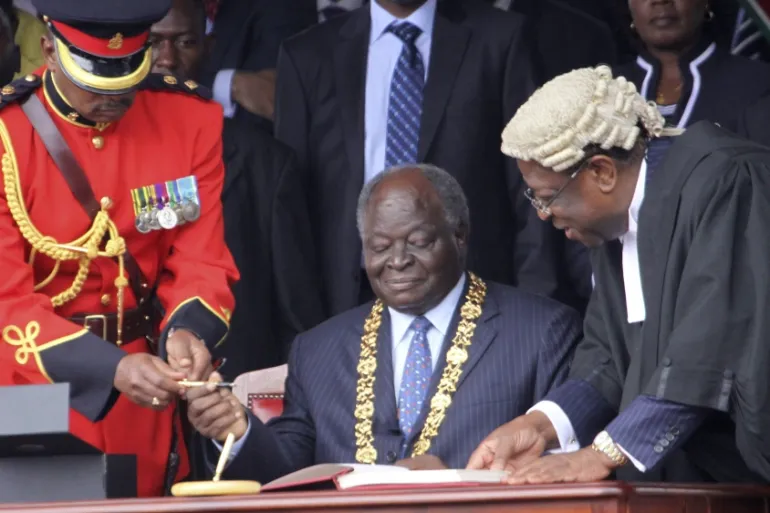
Historical Context:
- British Colonial Rule: Kenya was a British colony from 1895 to 1963. During this time, the British established a system of indirect rule, which marginalized and discriminated against the majority African population.
- Independence and One-Party Rule: Kenya gained independence from Britain in 1963, and Jomo Kenyatta became the first President. The country adopted a one-party system, which was dominated by Kenyatta's Kenya African National Union (KANU).
Growing Dissatisfaction and Calls for Reform:
- Economic Inequality: Despite independence, Kenya continued to suffer from significant economic inequality and poverty, particularly in rural areas.
- Political Repression: The one-party system was characterized by political repression, corruption, and a lack of accountability.
- Civil Unrest: In the late 1980s and early 1990s, Kenya experienced increasing civil unrest and protests against the government.
The Struggle for a New Constitution:
- Multi-Party Democracy: In 1991, the government was forced to introduce multi-party democracy in response to growing pressure from the international community and domestic opposition.
- Constitutional Review: In 2000, a constitutional review process was initiated to address the shortcomings of the existing constitution.
- Referendum on the Draft Constitution: In 2005, a referendum was held on a draft constitution, but it was rejected by voters.
NEWS

Spill The Tea
By Muranga’s Women Leaders Hold onto your hats, folks! The women leaders of Murang’a County have been serving up some piping hot tea, and we’re here to pour you a cup. During a riveting “Purpose Driven Leadership” training conducted by the fabulous Njeri Kabeberi of Chapter Four Programs and Projects on May 5th and 6th, 2023, these powerhouse ladies let loose with stories that’ll make you laugh, cry, and maybe even stand up and cheer! A Journey of Grit and
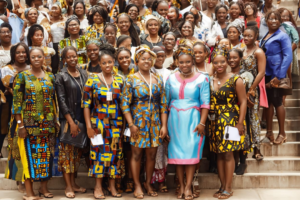
Empowering Women in Politics:
Empowering Women in Politics Chapter Four’s Race to Train 100 Women In a commendable effort to bolster women’s participation in politics, Chapter Four Programs & Projects, under the dynamic leadership of Njeri Kabeberi, has embarked on an ambitious initiative to train an additional 100 women ahead of the 2022 general elections. This laudable endeavor, aptly named the Women Mediation Network, is being conducted through a series of virtual and physical sessions, demonstrating adaptability in these challenging times. The project, which exemplifies the organization’s commitment
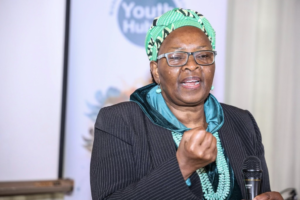
Breaking News: Empowering Women in Kenyan Politics
In a groundbreaking initiative, 290 women aspirants from across Kenya received virtual training, followed by intensive physical training in five key counties, in preparation for the 2022 General Elections. From March to May 2022, an ambitious program led by Njeri Kabeberi of Chapter Four Programs and Projects, in partnership with Echo Network Africa and Democracy Trust Fund (supported by UN Women), set out to change the landscape of Kenyan politics. The program targeted five strategic counties: Lamu, Kericho, Nakuru, Marsabit,
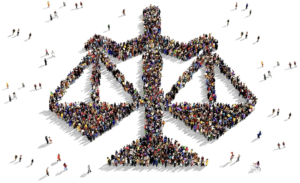
Human Rights Defenders Training in 6 African Countries
In October 2021, the Chapter Four Institute took a significant step forward in its mission to empower Human Rights Defenders (HRDs) across Africa. Under the expert guidance of facilitator Njeri Kabeberi, a second group of HRDs from six African countries received comprehensive training, further strengthening the continent’s human rights network. Participating Countries Training Highlights The training program, which took place over several intensive days, covered a wide range of crucial topics for Human Rights Defenders: Impact and Significance This second
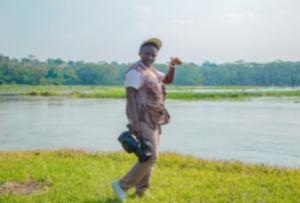
Women in Media: Developing Purpose-Driven Female Journalists in East Africa
In an era where the role of journalism in shaping public opinion and driving social change is more crucial than ever, a recent training initiative in East Africa has taken a significant step towards empowering female journalists to become purpose-driven leaders in their field. The seven-day “Conversational Workshop” held from April 25th to May 1st, 2021, brought together 17 carefully selected female journalists from Tanzania and Kenya, aiming to help them locate and develop their purpose as journalists. A Transformative
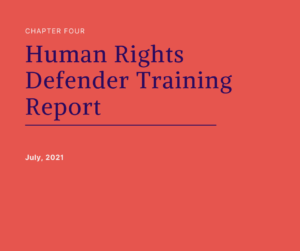
Human Rights Defender Training Report
Human Rights Defender Training Report July 2021 Chapter Four Institute Directors Report Kenya In Kenya, we focused on digital security for HRDs, training 50 activists on secure communication and data protection. The program saw a 90% completion rate, with participants reporting increased confidence in their ability to protect sensitive information. Democratic Republic of Congo (DRC) Our efforts in the DRC centred on conflict resolution and peace-building techniques for HRDs working in volatile regions. We trained 35 defenders, with a focus
